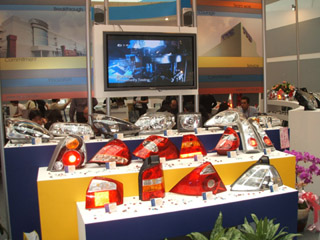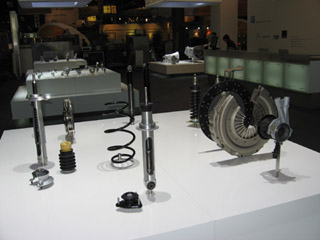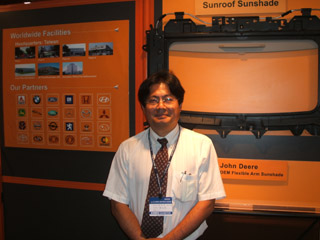Taiwan Sales Slump Affects Domestic Auto-parts Makers
2008/06/11 | By Quincy LiangTaiwan's auto sales have hit a two-decade low during the past two years, confronting the island's original-equipment (OE) auto-parts makers with unprecedented challenges.



Domestic first-tier parts suppliers are striving to survive the hard times by laying off employees, reducing production shifts, and cutting costs, among other countermeasures. Second-tier suppliers are in even worse shape, and some of them-and their satellite plants-are closing down.
More and more observers are expressing concerns about a possible domino effect in plant shut-downs if new-car sales do not pick up in the second half of the year.
Sales of new cars have plummeted 40% over the past two years, to a 20-year low of just 326,800 units in 2007. In the first four months of 2008, sales were down by a further 20% compared with the same period a year earlier.
"We've been waiting a long time for spring to arrive, but we've seen no signs of a swallow so far," laments one first-tier parts maker. "And most forecasts of a recovery this year deviate from real market conditions."
OEM to AM
The Jui Li Enterprise Co., which is the largest supplier of OE sheet-metal body parts to local automakers, has been forced to shift more of its focus to aftermarket (AM) parts. AM products have generated twice the revenue of its OE parts in the past few months.
Jui Li's assistant manager, Lee Jun-te, says that the robust performance of AM parts may enable the company to eke out a 1.79% revenue growth in the first half of the year. Revenue from OE parts is expected to drop by 10% in the same period, however, while soaring materials prices further erode the company's profit margin.
Cost-cutting Countermeasures
The company has moved to cut costs by getting rid of a third of its employees (in two stages) in the first six months of 2008, and by concentrating all stamping work at its Kaohsiung plant in southern Taiwan so as to keep equipment utilization up.
More employee cuts may be in store, Lee commented, if new-car sales do not improve.
The Ta Yih Industrial Co., the largest maker of OE auto lamps in Taiwan with about 80% of the market, boasts that it has been successful in developing exports to Japan through a Japanese technical partner. This helped boost the company's first-quarter revenue by 17.84%; profits, however, are expected to decline by 5%.
Industry insiders say that soaring materials prices and declining demand for OE parts have had a serious impact on the profits of first-tier parts manufacturers. Even expanded export sales by companies such as Ta Yih are unable to make up for losses in domestic sales.
Ta Yih reports that Koito, the largest supplier of auto lamps to Toyota and the world's biggest company in its field, has chosen the Taiwan company to be one of its global production bases. Partly as a result, Ta Yih expects the ratio of exports in its total revenue to increase from 20% in 2007 to 30% this year.
While Ta Yih and Jui Li have broad customer bases, the Taiwan Calsonic Co., a major supplier of automotive air-conditioning system parts, sells most of its output to the local Yulon Motor Co. (which produces Nissan models in Taiwan) and the China Motor Corp. (Mitsubishi).
Taiwan Calsonic's first-quarter revenue was down by 30% this year, causing the firm to suffer its first quarterly loss ever.
Company spokesman Song Jui-Chung reported that Taiwan Calsonic laid off two batches of employees and cut the salaries of high-level executives by 10% to 20% last year.
Some upstream mold and die developers have closed down in the past month or two, Song continued, and this has inevitably affected the normal production operations of downstream manufacturers such as Taiwan Calsonic.




